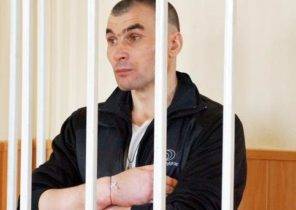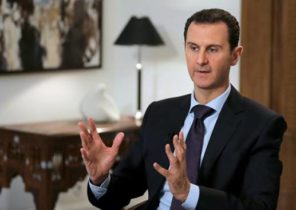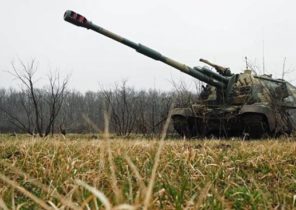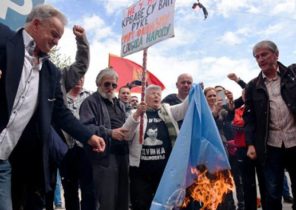
Putin, who since, as he again took the power in their hands, mastered the new strategies of foreign and security policy, in 2012, talked about the increase of Russia’s influence in Eurasia, focusing on the Middle East and North Africa, instability which has a direct impact on Russia and its security.
The Russian leadership entered into the period of realization is largely under the influence of the Arab spring, saw a need for a proactive foreign policy to counter the probable change of the ruling regimes in the post-Soviet States.
Putin in his first years in the Kremlin was not able to determine policy in the middle East and North Africa. One of the reasons is the financial difficulties of the country, the other a resolute attitude of the government to cooperate with the West in the region.
And during the presidency of Boris Yeltsin in 1990-e years Russia’s intentions in the middle East was also not very clear. Yeltsin’s Russia failed to create any consistent policy in the region. After the collapse of the Soviet Union has been a serious decline in the sale of arms to countries in the Middle East, considerably reduced financial assistance to the allies of this country in the region.
Putin and the middle East as Russia’s priority
When Vladimir Putin succeeded Yeltsin as President, the middle East has become a political priority for Moscow.
In fact, in the early 2000s, after the September 11 terrorist attacks, Russia also decided to join started by the West against international terrorism.
Moscow, joining the caravan, hoping that it will take at least a member of the Western Alliance, if not a part of it.
In his famous Munich speech in 2007, Putin said that will not cater to the unipolar world and to play by the rules of America. This performance was proof that “obedient Russia” is no more, and now this country would pursue assertive foreign policy.
The Arab spring threatens Russia
That Russia showed no interest in the Middle East until the protests within the Arab spring swept the region.
In the words of the Minister of foreign Affairs Sergey Lavrov, the Arab spring was a surprise that everyone was expecting but didn’t know when it will happen.
At the beginning of 2000-ies in the regions near the Russian border, Russian politics witnessed events similar to the wave of revolutions that swept the Middle East. Political upheavals in Ukraine, Georgia and Kyrgyzstan has brought to power a strong anti-Russian government.
The Arab spring is reminiscent of the “color revolutions” that the opponents of Russia used as an effective foreign policy tool.
Another event, which Russia regarded as “change operation mode”, was the military intervention of NATO in Libya. Russia during the Libyan operation felt betrayed because she did not veto the corresponding resolution of the UN Security Council.
Amid all these developments in Russia discussed the question of whether Putin will become President again. The death of Gaddafi (Kaddafi) has strengthened the belief that Putin has come to power. The Kremlin feared that Russia might do the same, as with Libya, and believed in the need to conduct more decisive foreign policy. And the liberal Mr Medvedev, who sought to build a favorable relationship with the West, it would be difficult to pursue such a policy.
In the revised version of the foreign policy Concept of Russia from November 30, 2016 the middle East has been identified as a region of instability which has a direct impact on Russia.
The struggle against US domination in the middle East
Filling the gap left by the Americans, was one of the political strategies of the cold war, and often it is not required the big work. The most striking example is Egypt.
After the former President of the United States Barack Obama (Barack Obama) announced the reduction of financial aid to Cairo, there was an Alliance of Putin and al-Sisi, and for the first time since 1972, an agreement was signed on sale of arms worth three and a half billion dollars.
Russia used all its military and diplomatic capabilities to keep the United States from the decision-making process in Syria.
Security threat for Russia
Vladimir Putin considers Russia as a legitimate player in the process of creating a new balance of power in the middle East. And it’s not only to eliminate the United States, which he views as another player in the region. The most important reason is that security threats faced by the middle East powers that most threaten Russia’s security.
Russia in the framework of the strategy for minimizing those threats is on the path of building its military capabilities in the region.
Russia, on the one hand, activated his old military base in the middle East, on the other — became one of the largest arms suppliers in the region.
The fact that Russia has made its permanent base Hamim and Tartus on the Mediterranean sea, is an important indicator of her desire to get a foothold in the middle East.
However, earlier it was reported that Moscow is negotiating with Cairo on the establishment of a naval base on the Egyptian coast of the Mediterranean sea.







